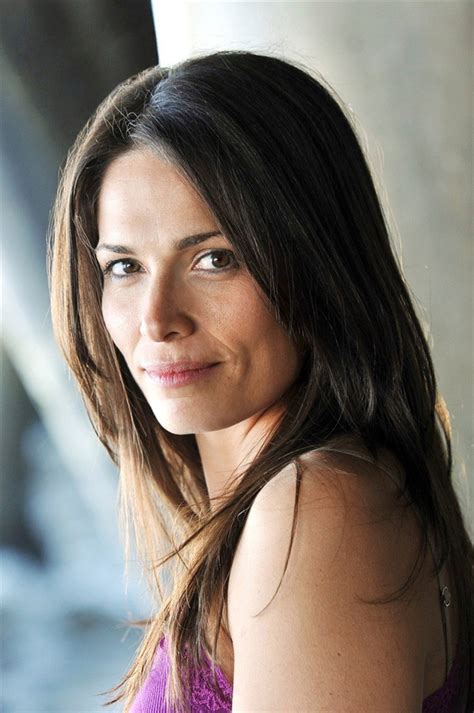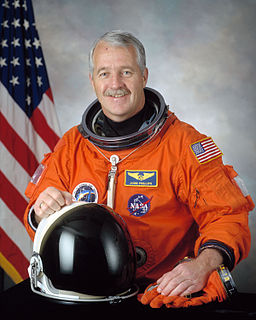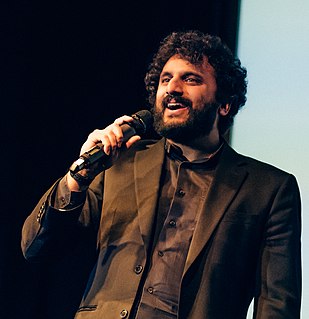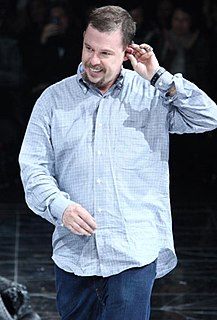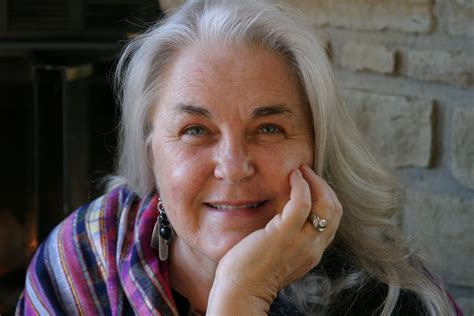A Quote by Jim Butcher
Science, the largest religion of the twentieth century, had become tarnished by images of exploding space shuttles, crack babies, and a generation of complacent Americans who allowed the television to raise their children. People were looking for something - I think they just didn't know what. And even though they were once again starting to open their eyes to the world of magic and the arcane that had been with them all the while, they still thought I must be some kind of joke.
Quote Topics
Again
Allowed
Arcane
Babies
Become
Been
Century
Children
Complacent
Crack
Even
Exploding
Eyes
Generation
Had
Images
Joke
Just
Kind
Know
Largest
Looking
Magic
Must
Once
Open
People
Raise
Religion
Science
Some
Something
Space
Space Shuttle
Starting
Still
Tarnished
Television
Them
Think
Though
Thought
Twentieth
Twentieth Century
Were
While
World
Related Quotes
I had a guy at the Groucho bar clawing at my arm nearly in tears saying that until he saw The Departed he thought Americans were the ones on TV. I didn't know you had accents. I didn't know you had a class system. I didn't know you were like us. To which the answer is, probably only where I grew up, but while we're at it don't watch television and think it's the United States of America.
I'd always thought of myself as an open-minded person. I had no patience with anyone who put down other kids because of their race, religion, or sexuality. But that's just one kind of open-mindedness. There's another kind, too, the kind that's willing to see people for who they really are and admit when you were wrong about them. That's the part I still need to work on.
Modernism really started with people getting infatuated with the idea of "it's the twentieth century, is this suitable for the twentieth century." This happened before the First World War and it wasn't just the soldiers. You can see it happening if you read the Bloomsbury biographies. It was a reaction to a great extent against Victorianism. There was so much that was repressive and stuffy. Victorian buildings were associated with it, and they were regarded as very ugly. Even when they weren't ugly, people made them ugly. They were painted hideously.
It has been said that the three great develpments in twentieth century science are relativity, quantum mechanics, and chaos. That strikes me the same as saying that the three great developments in twentith century engineering are the airplane, the computer, and the pop-top aluminum can. Chaos and fractals are not even twentieth century ideas: chaos was first observed by Poincare and fractals were familiar to Cantor a century ago, although neither man had the computer at his disposal to show the rest of the world the beauty he was seeing.
There was some sadness in how that could happen, Tai thought: falling out of love with something that had shaped you. Or even people who had? But if you didn't change at least a little, where were the passages of a life? Didn't learning, changing, sometimes mean letting go of what had once been seen as true?
There had been a popular joke on Freedom, started by a man named Calder. Looking down from space, he had said, the dominant life forms on Earth were obviously the cereals and other grasses. They occupied all the most desirable and fertile land; and they had tamed insects and animals to care for them. In particular, they had domesticated the bipeds to nurture and cultivate them and to save and plant their seed. Now, watching the farmers, Alex could easily imagine that they were worshiping and genuflecting before their masters.
What a host of little incidents, all deep-buried in the past -- problems that had once been urgent, arguments that had once been keen, anecdotes that were funny only because one remembered the fun. Did any emotion really matter when the last trace of it had vanished from human memory; and if that were so, what a crowd of emotions clung to him as to their last home before annihilation? He must be kind to them, must treasure them in his mind before their long sleep.
That was the thing: Once, the difference between light and dark had been basic. One was good, one bad. Suddenly, though, things weren’t so clear. The dark was still a mystery, something hidden, something to be scared of, but I’d come to fear the light, too. It was where everything was revealed, or seemed to be. Eyes closed, I saw only the blackness, reminding me of this one thing, the most deep of my secrets; eyes open, there was only the world that didn’t know it, bright, inescapable, and somehow, still there.
My friend George and I were walking on the beach in Norfolk, and there were thousands of [razor-clam] shells. They were so beautiful, I thought I had to do something with them. So, we decided to make [a dress] out of them. . . . The shells had outlived their usefulness on the beach, so we put them to another use on a dress. Then Erin [O’Conner] came out and trashed the dress, so their usefulness was over once again. Kind of like fashion, really.
The idea that Christianity is basically a religion of moral improvement... has its roots in the liberal Protestantism of the late nineteenth century and early twentieth century... It is this stereotype which continues to have influence today... But then came the First World War... What had gone wrong was that the idea of sin had been abandoned by liberal Christianity as some kind of unnecessary hangover from an earlier and less enlightened period in Christian history.
Of all the dear sights in the world, nothing is so beautiful as children when they are giving something. Any small thing they give. Children give the world to you. They open the world to you as if it were a book you'd never been able to read. But when a gift must be found, it is always some absurd little thing, passed on crooked. . . an angel looking like a clown. Children have so little that they can give, because they never know they have given you everything.





